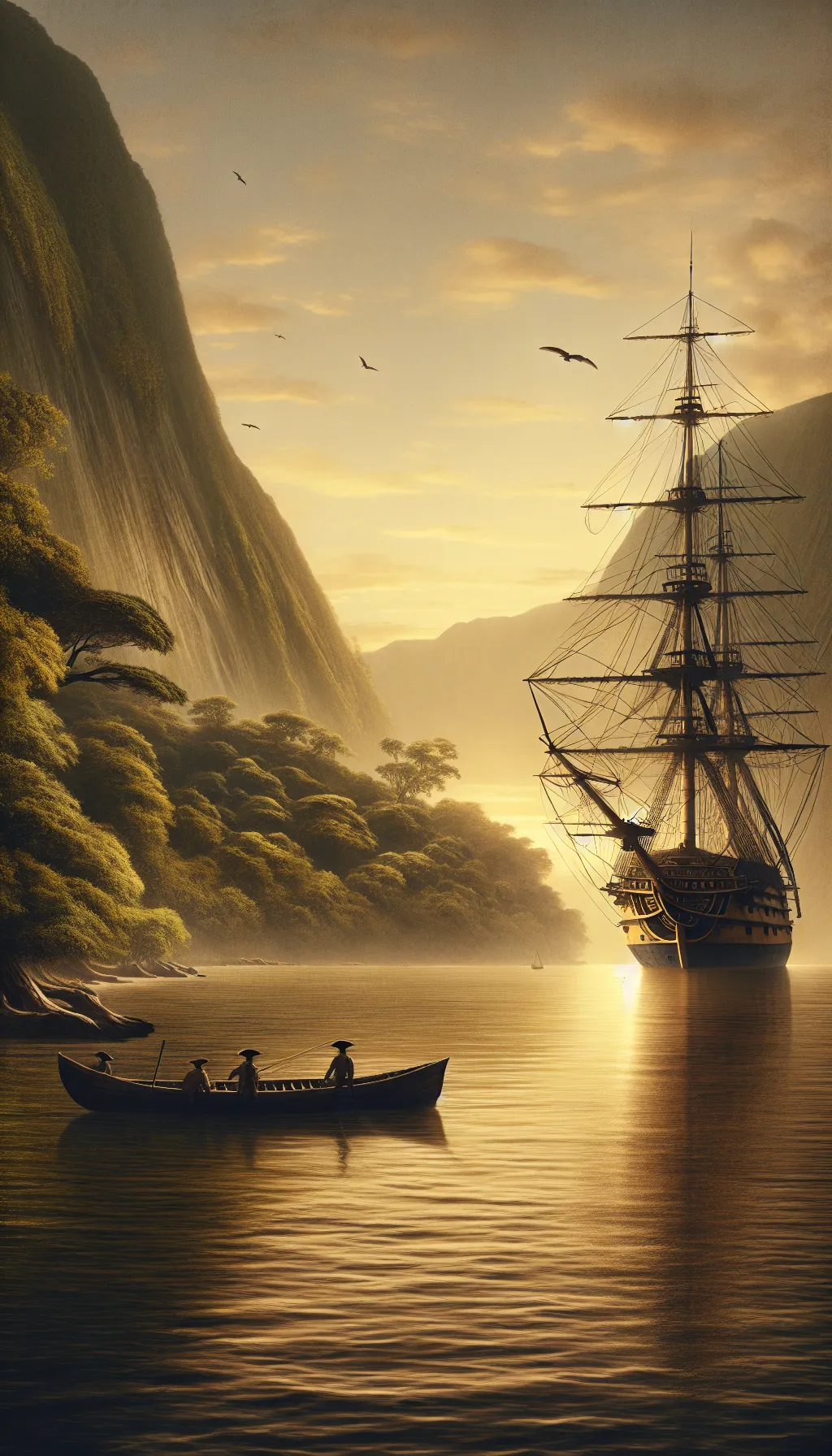Australia – The Dawn of a New World – April 29, 1770
TLDR;
- Event: On April 29, 1770, Captain James Cook and his crew aboard the HMS Endeavour made first recorded European contact with the eastern coastline of Australia at Botany Bay.
- Mission: Their journey aimed to observe the transit of Venus in Tahiti and explore the speculated southern continent, Terra Australis Incognita.
- Encounter: The landing introduced them to the rich biodiversity of the area and the Gweagal people, marking a pivotal moment in history.
- Legacy: This event led to further exploration and eventual colonization, beginning with the First Fleet’s arrival on January 26, 1788, profoundly impacting Australia’s indigenous populations and shaping the continent’s future.
–
Story
The salty breeze carried the scent of adventure as the HMS Endeavour anchored off the coast of an unknown land. It was April 29, 1770, and Captain James Cook stood on the deck, eyes fixed on the lush, uncharted shores of what would come to be known as Botany Bay. This was no ordinary day; it was the dawn of a new world.

For months, Cook and his crew had sailed through treacherous waters, driven by the promise of discovery. Their mission was to observe the transit of Venus in Tahiti and then to chart the mysterious southern continent, Terra Australis Incognita, a land whispered about in European circles but never seen. As the longboats were lowered into the water, the crew’s hearts raced with anticipation and trepidation.
Upon landing, Cook and his men were greeted by the rich tapestry of flora and fauna that would later give Botany Bay its name, officially recorded in Cook’s journal on May 6, 1770. The vibrant colors and unfamiliar species were unlike anything they had ever seen.
Yet, this moment of wonder was shadowed by the presence of the land’s original inhabitants, the Gweagal people, who had first observed the British on April 19, 1770, near present-day Kurnell, with tense and wary eyes.
This encounter marked the first recorded European contact with the eastern coastline of Australia, a turning point that would forever alter the course of history. Cook’s landing paved the way for future exploration and eventual colonization, which began much later with the arrival of the First Fleet on January 26, 1788, setting in motion a series of events that would reshape the continent and its people.
As the sun set on that fateful day, the world had changed, though few could grasp the full magnitude of what had begun. The echoes of Cook’s arrival still resonate, a reminder of the complex legacy of exploration and the enduring impact of first contact.
–
| Would a different approach by Cook have changed the course of Australian history? |